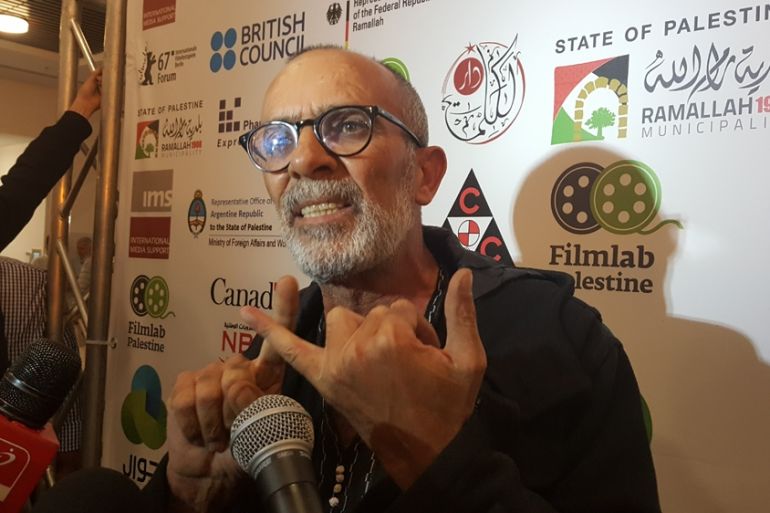Ziad Doueiri film dropped from Ramallah festival
Cancellation comes after activists launch boycott campaign over director’s ‘normalising approach’ towards Israel.

Ramallah – A film festival in Ramallah has ended without the screening of a movie by a Lebanese director following calls by Palestinian activists to boycott his work over his “normalisation” with Israel.
The Insult, directed and cowritten by Ziad Doueiri, was scheduled to close the Days of Cinema festival on Monday.
Keep reading
list of 4 itemsInside the pressures facing Quebec’s billion-dollar maple syrup industry
‘Accepted in both [worlds]’: Indonesia’s Chinese Muslims prepare for Eid
Photos: Mexico, US, Canada mesmerised by rare total solar eclipse
But on Sunday, the city’s municipality, which is a partner in the annual event, decided to scrap the screening at Ramallah’s cultural palace citing its “responsibility to preserve civil peace and social coherence”.
The cancellation came after the Boycott, Divestment, Sanctions (BDS) movement and other activists launched a campaign against the showing, opposing the director’s previous work in Israel.
Doueiri had spent several months in Tel Aviv filming his previous movie, 2012’s The Attack.
“Since Ziad Doueiri is still defending normalisation, then the screening of his film by Arab festivals – regardless of intentions – can only be seen as encouraging him to continue his destructive and normalising approach,” BDS said in a statement published in Arabic on Sunday.
In their call, the activists had urged the festival’s organisers “to stop the planned screening … until a new formula for boycott is adopted, with consultations of civil society, to deal with a case like this one”.
‘Right to watch’
The Insult touches upon the sensitive relations between the Palestinian and Lebanese societies in the aftermath of Lebanon‘s civil war.
It earned Palestinian actor Kamel El Basha a Best Actor Award at this year’s Venice Film Festival.
At a press conference organised by Filmlab: Palestine, the festival’s organisers, during Monday’s closing ceremony, Basha said he is not against the principle of boycott but called for the formation of a countermovement to the “excluding and selective ideology” of BDS.
“BDS does not represent me,” he said.
“The boycott has a criteria and the BDS movement has not abided by it,” added Basha. “We are defending our freedom.”
When asked by Al Jazeera whether The Insult will be screened at a later a date, Basha said, “we intend to screen the movie here in Palestine, but we have not decided where or when.”
In a statement, Filmlab said: “Since its launch four years ago, Days of Cinema has been committed to [selecting] the participating films with accordance to special criteria, that takes into consideration the current guidelines of The Palestinian Campaign for the Academic and Cultural Boycott of Israel -PACBI.”
Palestinian actress, Areen Omari, who attended the closing ceremony, said the audience had a “right to watch” the film.
“It’s a shame the level we have reached – this was supposed to have been a celebration,” she said.
Hanna Attalah, Filmlab: Palestine’s artistic director, said in a statement read during the ceremony that the organisers viewed “the repercussions of this decision with a serious concern”.
Filmlab: Palestine also urged “the official cultural institutions, the civil society and all those who care about the cultural landscape, freedom of expression and thought, to move and assume their responsibilities towards preserving the Palestinian cultural achievements and preserving freedom of expression”.
The BDS movement began in 2005 when a coalition of 170 Palestinian civil society groups issued a call to “people of conscience” around the world.
It seeks to end the occupation and dismantle Israel’s illegal wall and settlements, demands full equality for Palestinian citizens of Israel, and calls for the rights of Palestinian refugees to be upheld.